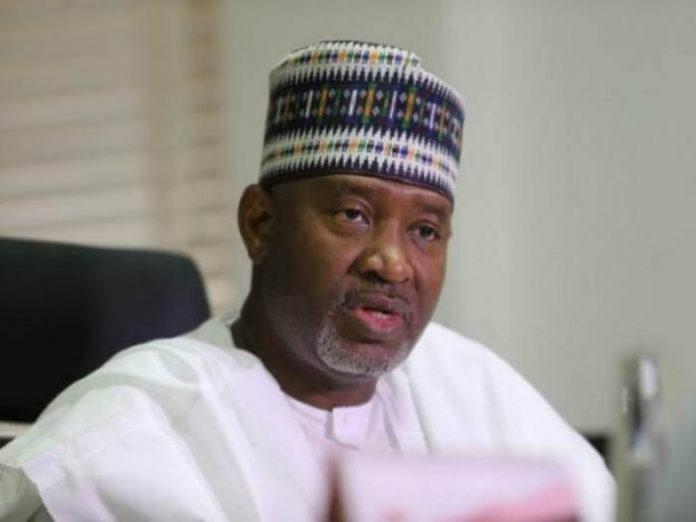Even with the dust motes of the Nigeria Air project yet to settle, the Minister of Aviation, Senator Hadi Sirika, has returned with another tale: Nigeria, he said, would embark on manufacturing aircraft before the expiry of Buhari’s second tenure in 2023. The “temporarily suspended” national carrier was taken down by the history of a malfunction that ran its predecessor aground, and the more the minister attempted to pitch the rebirth of the national carrier, so he was mocked by the memories of Nigerian Airways’ collapse from a 30-feet prestige investment to a liquidated global embarrassment.
Like Senator Sirika, the Nigerian political class prioritizes the prestige of a project over economics, and that’s led to a series of investments in white elephants that seem to call to question the mental health of those elected into sensitive public offices. Aside from the lack of maintenance culture and the disinterest of succeeding governments or administrators, the white elephants executed by our politicians through inflated contract rackets are designed to appease their egos and, in their own wild assumption, immortalize them. This explains why a state with unforgivably low internal revenue-generating capacity, and with no functional factory, would rush to invest billions in “decorating” roundabouts and justifying expenditures that could’ve revived a diseased industry.
One of the most recurring lines in the playbook of our state governments, for instance, is the rush to establish state universities even though such institutions exist in the same state, and yet are poorly managed. In the wisdom of these classroom populists, having such grand blocks of buildings attributed to them is enough legacy to maintain their political mortality and popularity among the masses, years after leaving office. In basic economics, the institutions are designed to run at huge losses, and not even the initiators care about developing a self-running framework that doesn’t rely on the government for consistent bailouts. What these institutions do is function as charity projects that preserve the memories of the politicians, even when they are financially asphyxiated by lack of funding and rotting like the ones before them within the politicians’ jurisdiction.
In the early 2000s, Nigerians pointed to Tinapa—an aggressively marketed multi-million dollar resort and free trade zone initiated by the then Cross River State governor, Donald Duke, to revitalize the state’s tourism and economy. With advertised ambitious film studios, luxury shops and grand warehouses, and elevated light railway, Tinapa set out to be an economic live-wire on the continent. That some readers may struggle to recollect this promising project confirms its status today, a whopping $450 million blown away by the pursuits of prestige.
This fear of the economics of prestige projects, which the politicians call “legacy project,” rang in the voices against Kano’s $1.85 billion light rail project when Governor Abdullahi Ganduje announced it a few years ago. Critics, including the foremost politician and former presidential candidate, Alhaji Bashir Tofa, have dismissed it as a white elephant project, and with then Emir Muhammadu Sanusi II eloquently underlining the poverty of idea that inspired such project at a 2017 summit in Kaduna. “China will lend you $1.8bn to build light rail,” he said. “This light rail will be done by the rail workers from China. The trains will come from China. The engines will come from China. The labour comes from China. The driver is Chinese.”
The “legacy project” culture, which disregards the economic returns of proposed investments have come with devastating consequences, from the short life spans of these capital intensive projects to the cost of maintaining them. So, Senator Sirika’s proposed partnership with that Hungarian firm to produce aircraft in Nigeria is a familiar tale from our politicians’ playbook of white elephants.
It’s hard to miss the sardonic undertones of a country with no industrial capability to sustain the production of bicycles aspiring to manufacture aircraft. Nigeria has fallen from a country that was once the hub of assembly plants of some of the world’s biggest automobile firms to one overly excited about the dream of producing pencils.
Partnering with a foreign firm to produce aircraft would’ve had us all rushing to the street to celebrate if this hasn’t been a familiar joke. The same has been said about the promise to revive Peugeot assembly plants and re-open Volkswagen assembly plants. Jelani Aliyu, the world-renowned automobile designer and current Director-General of Nigerian Automotive Design and Development Council (NADDC), even promised Nigerians “electric cars revolution,” and it’s been the chirping of crickets since then.
Even basic economics emphasizes comparative advantage as a guide for policymakers. Our textile industry, for instance, was destroyed by the realization that it’s cheaper to import a t-shirt from China than producing one in a local factory here. The solution would’ve been imposing high tariffs on such imports, but when you are a loan-scouting startup, you have no audacity to do so.
We can’t build a castle without foundations, and we are better off prioritizing stable electricity, good networks of roads, security, and creating a conducive business environment for the light industry and the akara sellers and makeup artists thriving on Instagram. If we really want to be honest to ourselves, aside from arms manufacturers and contractors, no sensible investor would be keen on lasting investments in a country on the brink Nigeria has occupied in the past few years. The risks are damn too many.

 Join Daily Trust WhatsApp Community For Quick Access To News and Happenings Around You.
Join Daily Trust WhatsApp Community For Quick Access To News and Happenings Around You.


